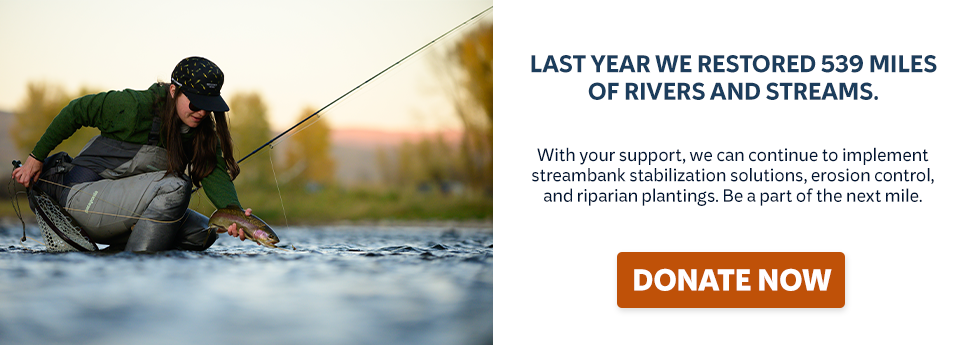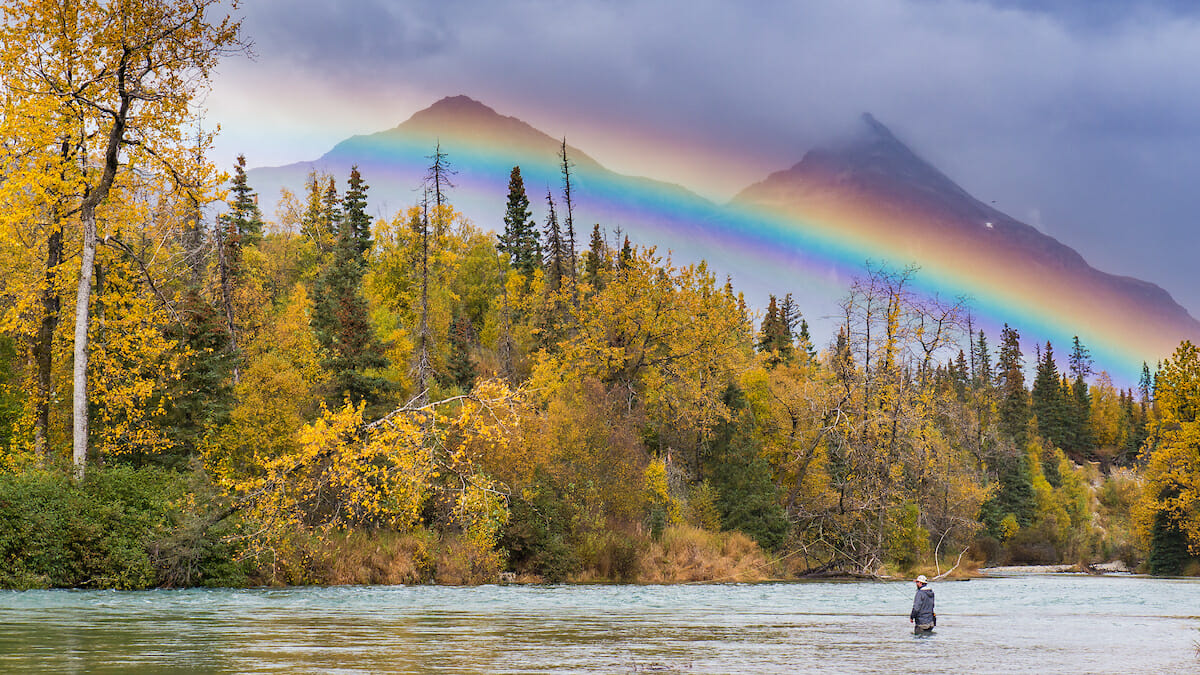Can we please stop asking this divisive, short-sighted, counterproductive, and insulting question?
I get asked fairly often if Trout Unlimited is a “conservation” entity, or an organization rooted in “fishing for trout.” Aside from TU, I am also asked whether I think there’s a genuine conservation ethic among most trout anglers, or if we’re just in it for the joy of pulling on fish.
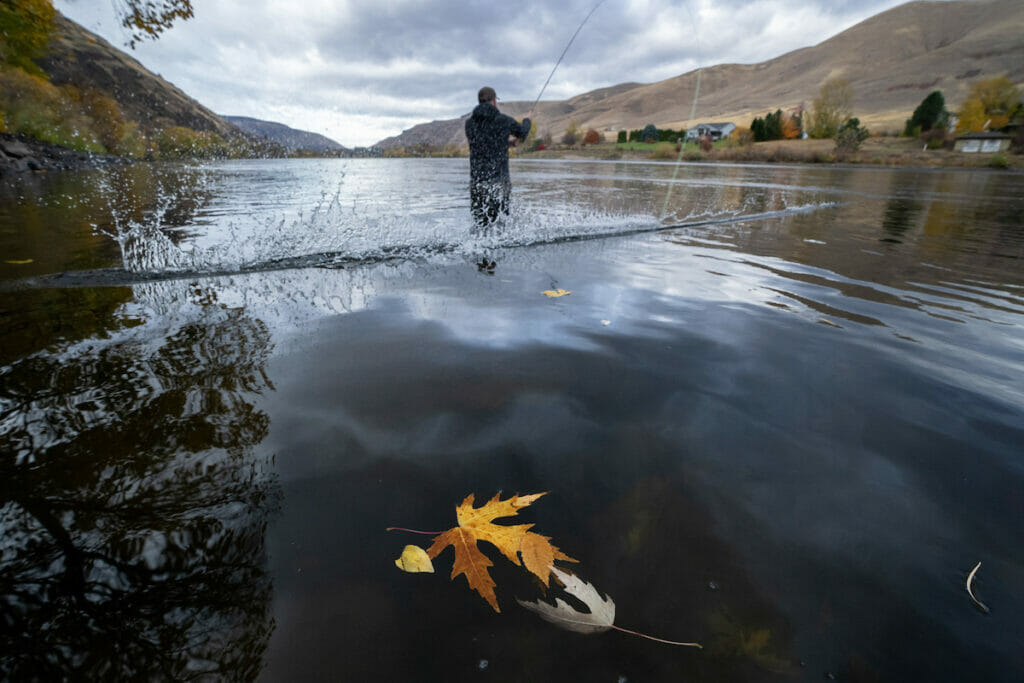
Whenever I am asked these things, I often just bow my head in sadness and disgust.
Because throughout my entire lifetime of fishing, writing and advocating for the environment, the most abundantly clear lesson I have learned is that you cannot have one without the other.
It’s like peanut butter and jelly. You can go one way, or you can opt for the other, but only when you smash ‘em together does the real result come together in a way that delivers results.
It’s when you start implying that people should choose between conservation or fishing that we lose the flavor and effectiveness of the entire schmear. And as someone who has been hawking the PBJ approach to fishing and conservation for my entire career, every time I sense the notion that it’s one or the other, that’s a gut punch. It’s draining and even insulting.
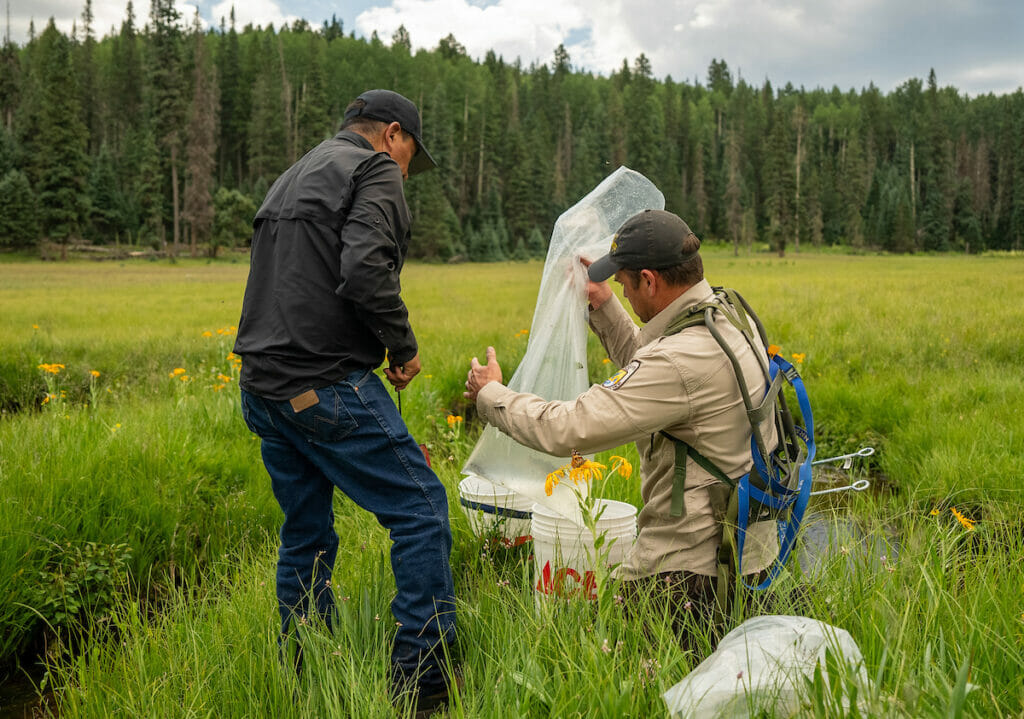
Make no mistake, I am a angler. I love chasing any fish that swims with a primitive stick and a string, and I have written stories about many fishing adventures, from mako sharks in the Pacific Ocean to redfish in the Carolinas, tarpon in the Florida Keys and stripers off Montauk in New York, to the arapaima and golden dorado in the South American jungles.
But like many fly anglers (most, in fact), my journey started with trout in a cool, clean river. And I suppose if I had to answer the “if you only had one day to fish anywhere, for what species?” question, my answer would easily be chasing trout on a clear stream.
As such, it was ingrained in me at the onset that fly fishing—for trout, or any other species—carried with it an onus to put back more than you take. Even with catch-and-release fishing, where catching a limit and stuffing the creel matters not at all, there is still an obligation to the resource and making rivers and lakes better for others to experience.
I am, by no means, alone in this regard, and every serious angler I have known in my life, from my mentors to comrades and friends, felt or now feel this obligation.
The truth is, fly anglers also know that we’ve been hauling the mail and paying the bills when it comes to conservation for generations. That’s exactly why and where Trout Unlimited started, and at least in my personal opinion, where it should stand today.
Now, there are indeed others who are motivated just to see clean, cold rivers, and they don’t care at all about pulling on fish. And that’s wonderful. Thank goodness for them.
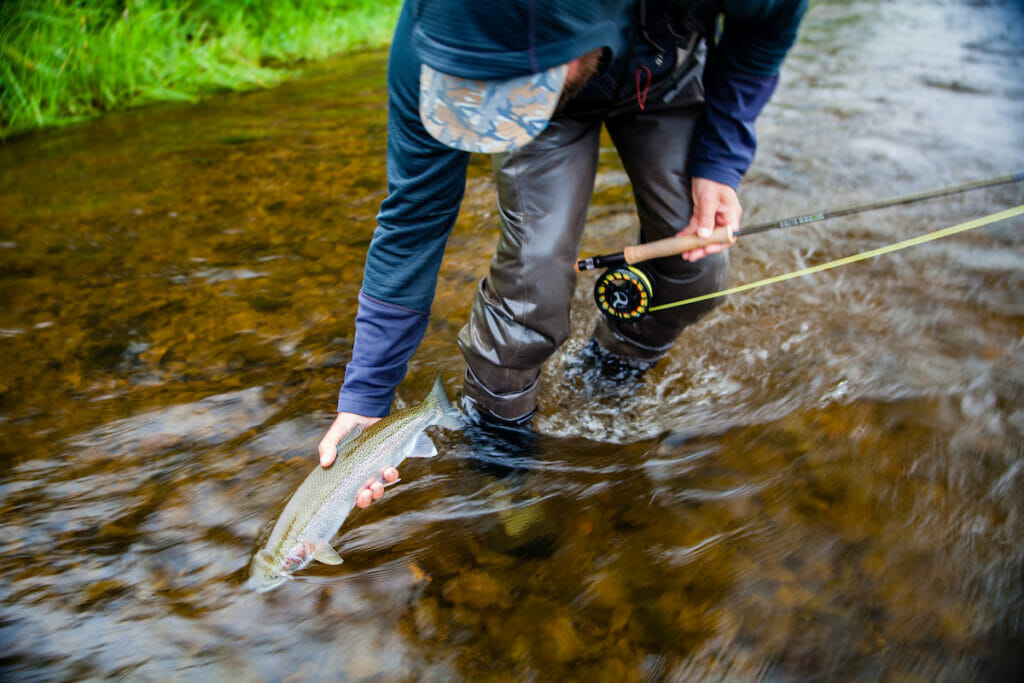
Another truth is that if you ask most serious anglers what they care most about, “pulling on fish” probably rates well below other things like experiencing wild places and sharing a pastime with people they enjoy being with. And on top of that, most anglers I know are disheartened by the joyride, industrialized, instant gratification game that trout fishing has become in many places.
The bottom line is that it’s really about respect and conscience. If casting and catching doesn’t flip your switch, but you care about healthy river habitat, that’s wonderful. Thank you for engaging. Conversely, if you’re all about fishing, that’s great too, but that comes with a responsibility to replenish.
I’d humbly suggest that anyone who thinks fishing stands in the way of conservation should consider the facts and the legacy that’s already there. Nobody is going to force a fly rod into your hand. But if you want to go down the fly-fishing path, there’s a vibrant community willing to welcome you.
But please don’t suggest that taking the fly rods out of our hands—that trout fishing stands in the way of conservation—makes any sense. After all, we’re ultimately in it together. And fly anglers have comprised the vanguard of freshwater conservation for generations. Most of us intend to keep it that way.

